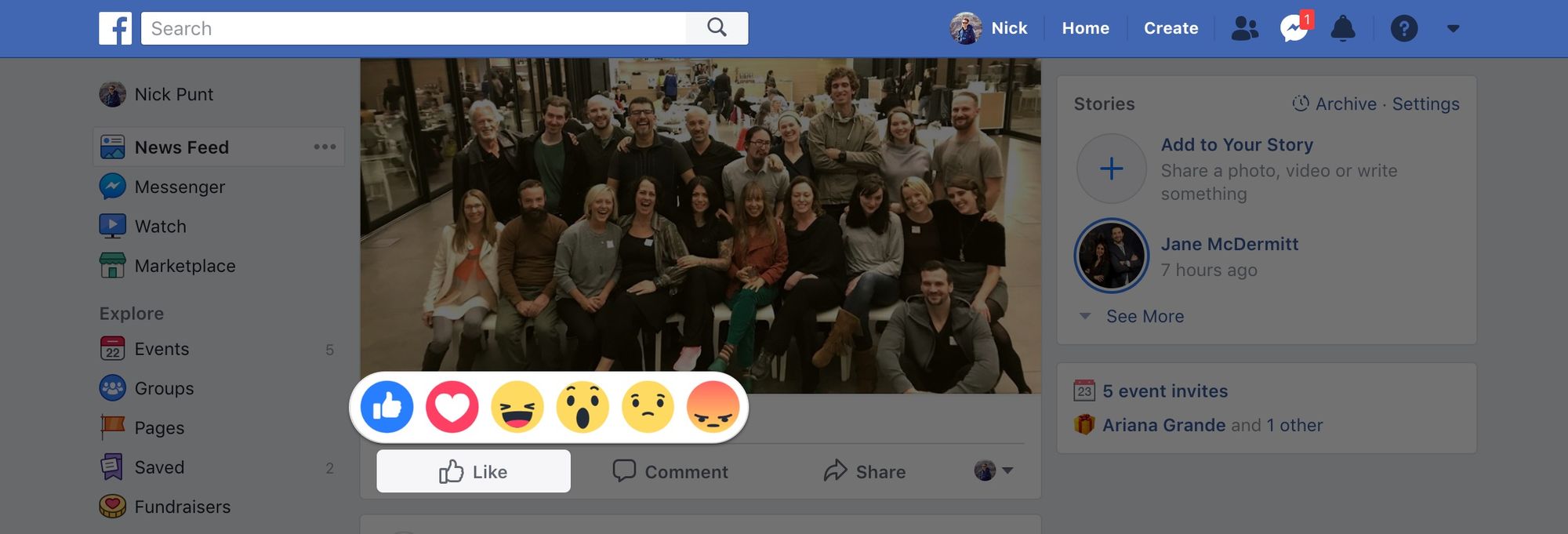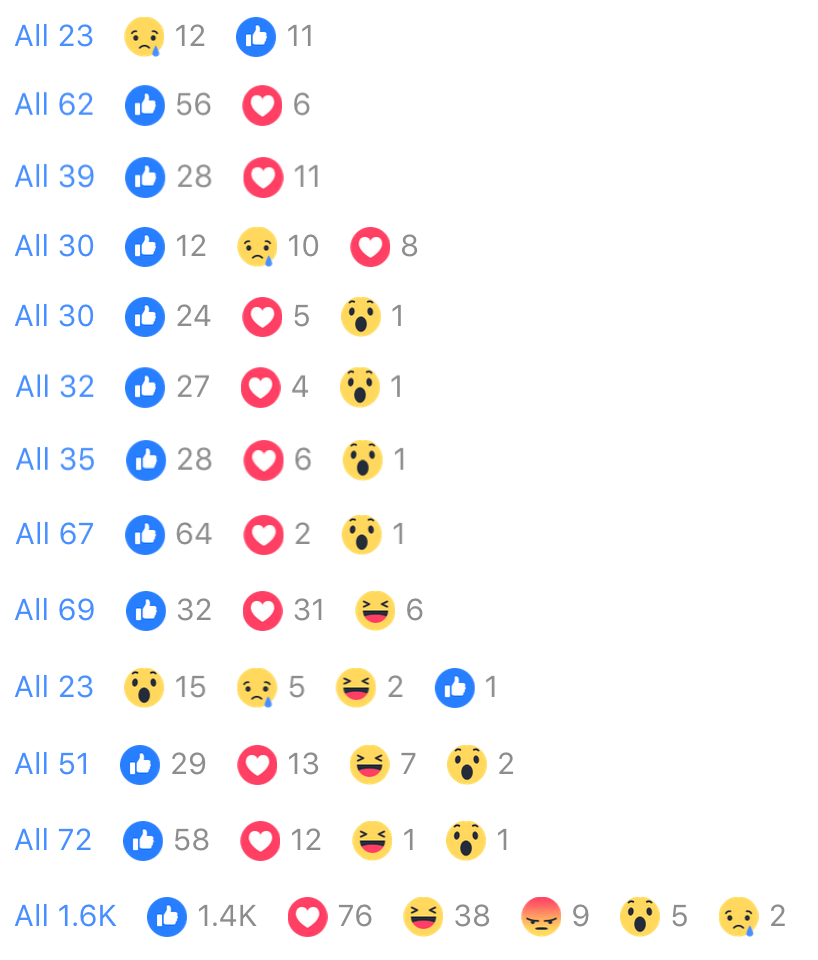After noodling around on Facebook tonight clicking 'Like' several times, I realized that there seem to be an awful lot of posts that I felt compelled to Like, and it's not just because I'm in a good mood. The algorithm is getting smarter.
This got me thinking, if the newsfeed continues to get smarter, eventually you will feel compelled to Like almost every post in your feed. At this point is there reason to press a button at all?
It's a funny design thought experiment. If you keep the Like buttons, you have unnecessary friction where the user is pressing buttons all the time and it starts to feel like work. If you try to get rid of the Like buttons, you run into issues of having a less optimized feed, and killing a feedback loop that lets people know whether anyone is reading what they wrote.[1]
When at a design crossroads like this, its good to step back and explore things from other angles. To me, those angles are asking what is the point of the feed? and what is the effect of the feed?

When it comes to the new Likes with reactions, I'm really of two minds. On one hand, they're more expressive than old school Likes, and capture the feeling of the moment. On the other, they introduce an emotional language that feels cheap, like something out of Black Mirror.
Incredibly personal story about a friend's struggle?
😢 SAD!
scroll
scroll
Picture of a cat?
😆 HAHA!
scroll
scroll
Video of someone being a jerk?
😡 ANGRY!
scroll
scroll
This whole process of liking feels reductive, commodifying, even comical. We shouldn't flop between emotion so quickly, because we don't process emotion that quickly. Paradoxically, pressing these buttons makes us more aware of this cheapness as we stop processing emotions midway though feeling them.
As Facebook inches towards this eventuality of the perfectly optimized news feed, Likes are basically becoming a laugh track. We're all the studio audience reacting when the light in the studio says to laugh or clap or sigh.[2]
Mono-Emotion Rises to the Top
Come on, is it that bad though? Maybe. If you think about it, most posts essentially have these emotional responses baked in, because in order to reach your newsfeed, a post is either extinguished and you never see it, or it gets a reaction out of people, and those reactions tend to be pretty uniform.[3] So the whole thing feels just as canned as a sitcom's laugh track, only with a Like button providing a veneer of agency.
This argument is completely from the supply side of Likes. The demand side is probably even worse for us humans, especially younger people. Social comparison, addiction to anticipation of dopamine hits, life-as-performance. Everything with a price but nothing with a value. These have real consequences.
Is There, Like, Mission Alignment?
So back to the question of what the point is. Facebook just adopted a new mission "to give people the power to build community and bring the world closer together." I like that mission a lot, I think it's a much clearer reflection of the needs of our time. I'm not sure how Likes fit into it though, especially if the newsfeed continues to get more optimized and starts resembling a laugh track, rather than social glue that brings us together.
My conclusion is: maybe it's time to finally ditch Likes, and find another design that works to better fulfill Facebook's new mission. I mean, do we really want to still be Liking posts in 30 years, with all that entails? I think its about time we find a more meaningful way to interact, and acknowledge that current engagement metrics are not the way we'll measure meaningful interaction.
Likes optimize the feed - likes represent a major input in the feed algorithm's understanding of what content is compelling to engage with. In this hypothetically super-optimized feed, likes act as a perpetual motion machine of engagement, only petering out as the feed algorithm starts testing the content on users its less certain will engage. Lacking likes as an input, the algorithm must rely on comments, which are a much higher friction and lower volume input. What content succeeded in this system would have a different profile, geared towards content that compels conversation.
Likes give users feedback - One alternative way to give users feedback would be replacing likes with a Like proxy that takes into account viewing time. The user could see how much time people spent viewing their content. But, this might lose the personal touch of a Like (Jane liked my post) and depending on how its implemented, could raise issues of privacy if the poster saw which people were viewing their content (though to be fair, this is how Instagram Stories work). There's a lot more questions here on what users are look at as it relates to future technologies like eye tracking that is worth much deeper analysis and concern. ↩︎
This isn't a hypothetical, remember Facebook ran experiments on user emotions by presenting positive or negative content to users to see its effect on engagement. ↩︎
Typically posts have two reaction types, sometimes three, with the default 'Like' being one of them. If you get multiple reaction types, the distribution tends to be heavily skewed to one type. Here's a sampling of some posts with multiple reactions in my homefeed:

